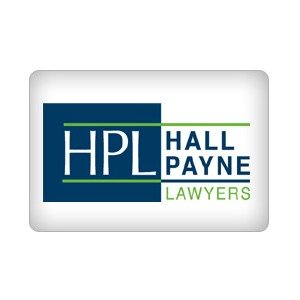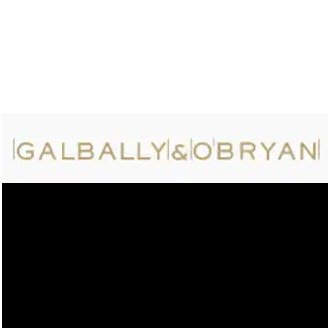Best Arrests & Searches Lawyers in Melbourne
Share your needs with us, get contacted by law firms.
Free. Takes 2 min.
List of the best lawyers in Melbourne, Australia
About Arrests & Searches Law in Melbourne, Australia
Arrests and searches in Melbourne, Australia, are governed by a combination of federal and state laws designed to balance the enforcement of law and the protection of individual rights. The laws dictate how and when police can conduct searches, make arrests, and their conduct during such actions. Key legislation includes the Crimes Act 1958 (Vic), the Victoria Police Act, and the Charter of Human Rights and Responsibilities Act 2006. Law enforcement officers are required to act within the framework of these laws, ensuring that rights are protected while maintaining public safety and order. Understanding these laws is crucial for anyone who may be subject to a police encounter or who seeks to understand their legal rights during such situations.
Why You May Need a Lawyer
There are several common situations in which you may require legal assistance regarding arrests and searches in Melbourne, including:
- Being arrested or detained by the police.
- Having your home, vehicle, or personal belongings searched by law enforcement.
- Facing charges for an alleged crime and needing representation.
- Witnessing or experiencing what you believe was an unlawful search or arrest.
- Seeking to understand your rights during a police encounter.
- Filing a complaint or suing for wrongful arrest or illegal search.
- Having questions about police procedures and their legality.
In such cases, a lawyer can provide valuable expertise and representation, ensuring that your rights are protected and that you navigate the legal system effectively.
Local Laws Overview
In Melbourne, key aspects of the law relevant to arrests and searches include:
- The requirement for police to have reasonable suspicion to stop and search a person or property.
- The necessity of a warrant for most property searches, except under certain circumstances where specific powers are granted for warrantless searches.
- Individuals' rights to remain silent, although there are some questions, such as personal identification, that must be responded to.
- The obligation of police to inform individuals about the reason for their search or arrest.
- Limitations on force and the manner in which searches and arrests are conducted.
- Protections under the Charter of Human Rights and Responsibilities Act 2006 which provide a framework for respecting human rights in Victoria.
Understanding these local laws is important for effectively safeguarding your rights in scenarios involving law enforcement.
Frequently Asked Questions
What are my rights if I am stopped by police in Melbourne?
You have the right to ask why you are being stopped and to remain silent except when required to provide personal identification details. You should remain calm and respectful while clarifying the purpose of the stop.
Do the police need a warrant to search my property?
In most cases, police need a warrant to search your property. However, there are exceptions, such as when they have reasonable suspicion that a crime is being committed or to prevent injury or significant property damage.
Is it legal for the police to use force during an arrest?
Police can use reasonable force necessary to make an arrest or ensure public safety. However, excessive or unnecessary force is unlawful and can be challenged legally.
Can I record the police during an arrest or search?
You have the right to record police in public places as long as you do not obstruct or interfere with their duties. It's advisable to inform them that you are recording.
What should I do if I believe I have been wrongfully arrested or searched?
Consult with a lawyer who can help you understand your rights and guide you on the best course of action, which may include filing a complaint or lawsuit.
How soon after an arrest can I speak to a lawyer?
You have the right to contact a lawyer immediately after being arrested. It is important to seek legal advice as soon as possible to protect your rights.
Can police conduct body searches, and what are my rights?
Police can conduct body searches under certain conditions, such as having reasonable suspicion. You must be informed of the reason, and certain search procedures must be followed depending on the type of search.
What happens if I refuse a search?
If you refuse consent to a search, police may still proceed if they have legal grounds, such as reasonable suspicion or a search warrant. Refusal itself is not a crime but should be communicated calmly and clearly.
Do children have different rights during searches and arrests?
Yes, children have specific rights and protections including the presence of a guardian or responsible adult during questioning. Legal representation is crucial in these situations.
What is the role of the Charter of Human Rights and Responsibilities in police searches?
The Charter provides a framework for ensuring that human rights are considered and upheld during interactions with law enforcement, influencing how police conduct arrests and searches.
Additional Resources
For further support and information regarding arrests and searches, consider reaching out to the following resources:
- Victoria Legal Aid: Offers free legal information and advice.
- Community Legal Centres: Provide free legal services to people in need.
- The Victorian Ombudsman: Handles complaints about administrative actions of Victorian government agencies, including the police.
- Independent Broad-based Anti-corruption Commission (IBAC): Oversees police conduct and can investigate complaints.
- Flemington & Kensington Community Legal Centre: Specializes in police accountability.
Next Steps
If you require legal assistance regarding arrests and searches, consider taking the following steps:
- Contact a qualified lawyer who specializes in criminal law and arrests.
- Prepare any documentation or evidence that may be relevant to your case.
- Explain your situation clearly and concisely to your lawyer or legal advisor.
- Follow legal advice diligently and keep communication lines open for updates on your case.
- Consider utilizing free or low-cost legal services if financial constraints exist.
Taking prompt action and seeking professional guidance can significantly impact your understanding and defense of your legal rights.
Lawzana helps you find the best lawyers and law firms in Melbourne through a curated and pre-screened list of qualified legal professionals. Our platform offers rankings and detailed profiles of attorneys and law firms, allowing you to compare based on practice areas, including Arrests & Searches, experience, and client feedback.
Each profile includes a description of the firm's areas of practice, client reviews, team members and partners, year of establishment, spoken languages, office locations, contact information, social media presence, and any published articles or resources. Most firms on our platform speak English and are experienced in both local and international legal matters.
Get a quote from top-rated law firms in Melbourne, Australia — quickly, securely, and without unnecessary hassle.
Disclaimer:
The information provided on this page is for general informational purposes only and does not constitute legal advice. While we strive to ensure the accuracy and relevance of the content, legal information may change over time, and interpretations of the law can vary. You should always consult with a qualified legal professional for advice specific to your situation.
We disclaim all liability for actions taken or not taken based on the content of this page. If you believe any information is incorrect or outdated, please contact us, and we will review and update it where appropriate.
















